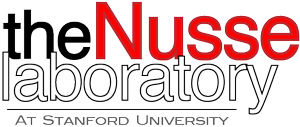Next-Generation Surrogate Wnts Support Organoid Growth and Deconvolute Frizzled Pleiotropy In Vivo.
Submitted by Anonymous on Sat, 12/19/2020 - 19:35
| Title | Next-Generation Surrogate Wnts Support Organoid Growth and Deconvolute Frizzled Pleiotropy In Vivo. |
| Publication Type | Journal Article |
| Year of Publication | 2020 |
| Authors | Miao Y, Ha A, de Lau W, Yuki K, Santos AJM, You C, Geurts MH, Puschhof J, Pleguezuelos-Manzano C, Peng WC, Senlice R, Piani C, Buikema JW, Gbenedio OM, Vallon M, Yuan J, de Haan S, Hemrika W, Rösch K, Dang LT, Baker D, Ott M, Depeille P, Wu SM, Drost J, Nusse R, Roose JP, Piehler J, Boj SF, Janda CY, Clevers H, Kuo CJ, Garcia KC |
| Journal | Cell stem cell |
| Volume | 27 |
| Issue | 5 |
| Pagination | 840-851.e6 |
| Date Published | 2020 Nov 5 |
| ISSN | 1934-5909 |
| Abstract | Modulation of Wnt signaling has untapped potential in regenerative medicine due to its essential functions in stem cell homeostasis. However, Wnt lipidation and Wnt-Frizzled (Fzd) cross-reactivity have hindered translational Wnt applications. Here, we designed and engineered water-soluble, Fzd subtype-specific "next-generation surrogate" (NGS) Wnts that hetero-dimerize Fzd and Lrp6. NGS Wnt supports long-term expansion of multiple different types of organoids, including kidney, colon, hepatocyte, ovarian, and breast. NGS Wnts are superior to Wnt3a conditioned media in organoid expansion and single-cell organoid outgrowth. Administration of Fzd subtype-specific NGS Wnt in vivo reveals that adult intestinal crypt proliferation can be promoted by agonism of Fzd5 and/or Fzd8 receptors, while a broad spectrum of Fzd receptors can induce liver zonation. Thus, NGS Wnts offer a unified organoid expansion protocol and a laboratory "tool kit" for dissecting the functions of Fzd subtypes in stem cell biology. |
| URL | https://linkinghub.elsevier.com/retrieve/pii/S1934-5909(20)30358-1 |
| DOI | 10.1016/j.stem.2020.07.020 |
| Short Title | Cell Stem Cell |
